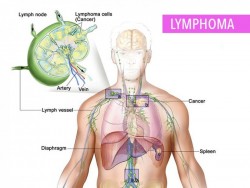
Prostate cancer occurs when the cells in the prostate begin to grow uncontrollably.
Sometimes, prostate cancer develops quickly and spreads to other organs. This is known as stage IV prostate cancer and is said to be metastatic.
The prostate gland is a small, walnut-shaped organ that sits between the bladder and rectum in men.
During ejaculation, sperm cells travel from the testicles through the seminal vesicles to the prostate gland. The prostate secretes special fluids that help the sperm cells survive.
This combination of fluid and sperm cells is known as semen, and it exits the body through the urethra.
In many cases, prostate cancer grows very slowly; so slowly in fact, that many men do not even know that they have the disease. In other men, however, the disease metastasizes — spreads to organs outside of where it originated.
Anyone experiencing these symptoms should consult with their doctor as soon as possible. While many other conditions can cause similar symptoms, it is important to rule out prostate cancer.
Once a person has been diagnosed with prostate cancer, the signs of metastasis will vary depending on the where the cancer spreads and how quickly it is growing.
For example, a person with prostate cancer and local metastasis to nearby lymph nodes may not experience any change in symptoms.
However, a person with metastasis to the bones may experience bone pain.

Advanced prostate cancer can cause many other health problems depending on where the cancer has spread to and how quickly it is spreading.
There are many types of treatments available for advanced prostate cancer. A doctor or oncologist will develop a treatment plan that takes into account the individual's symptoms, prognosis, goals for treatment, age, and general health.
Hormone therapy for advanced prostate cancer shuts down the production of male sex hormones. This can help prevent the cancer from continuing to grow. Common drugs include abiraterone (Zytiga) and enzalutamide (Xtandi).
Chemotherapy is a type of medication that destroys cancer cells or prevents them from multiplying. People are usually given chemotherapy once the prostate cancer has stopped responding to hormone therapy.
Chemotherapy is usually a combination of two or more drugs that are administered intravenously, injected, or taken as a pill.
Immunotherapy is a type of medication that modifies the body's immune system to find and destroy cancer cells.
Treatment for prostate cancer that has spread to the bones includes drugs such as zoledronic acid (Zometa) and denosumab (Xgeva). Treatment for local metastatic cancer may also include radiation therapy.

Luckily, there are many medications available to treat the side effects of cancer treatment.
A person should not feel the need to "power through" or suffer from uncomfortable symptoms. It is important for anyone undergoing treatment to communicate with their healthcare team about any side effects they are experiencing.
The prognosis for advanced prostate cancer depends on where the cancer has spread and how aggressively it is growing.
These are general statistics; it is important for a person with prostate cancer to speak to their doctor about their specific case.
If prostate cancer is diagnosed before it has spread, or if it has only spread to nearby structures, the survival rate is excellent.
This makes routine screening and early diagnosis essential in the fight against prostate cancer.
Men over the age of 50 should speak to a healthcare professional about the different screening options and which one is most appropriate for them.
 What Happens When You Quit Smoking – A Timeline
What Happens When You Quit Smoking – A TimelineEvery year more than 7 million people die as a result o...
 Types Of Yoga, Which One Is Best For You?
Types Of Yoga, Which One Is Best For You?There are two types of people in the world - those who ...
 10 Amazing Health Benefits Of Apricot Juice
10 Amazing Health Benefits Of Apricot JuiceOriginally from China, the use of apricots began almost...
 Cheap & Healthy Shopping List for Students
Cheap & Healthy Shopping List for StudentsCheap & Healthy Shopping List for StudentsStaying o...
 This Honey, Lemon And Cinnamon Drink Will Help You Lose Pounds In A Week
This Honey, Lemon And Cinnamon Drink Will Help You Lose Pounds In A WeekThe most effective way to lose weight is to do aerobic ...
 What You Need To Know About Lymphoma
What You Need To Know About LymphomaLymphoma is a cancer of the lymphatic system. It affect...
 This Honey, Lemon And Cinnamon Drink Will Help You Lose Pounds In A Week
This Honey, Lemon And Cinnamon Drink Will Help You Lose Pounds In A WeekThe most effective way to lose weight is to do aerobic ...
 Colon Cancer: Could Exercise Halt Tumor Growth?
Colon Cancer: Could Exercise Halt Tumor Growth?New research published in the Journal of Physiology sug...